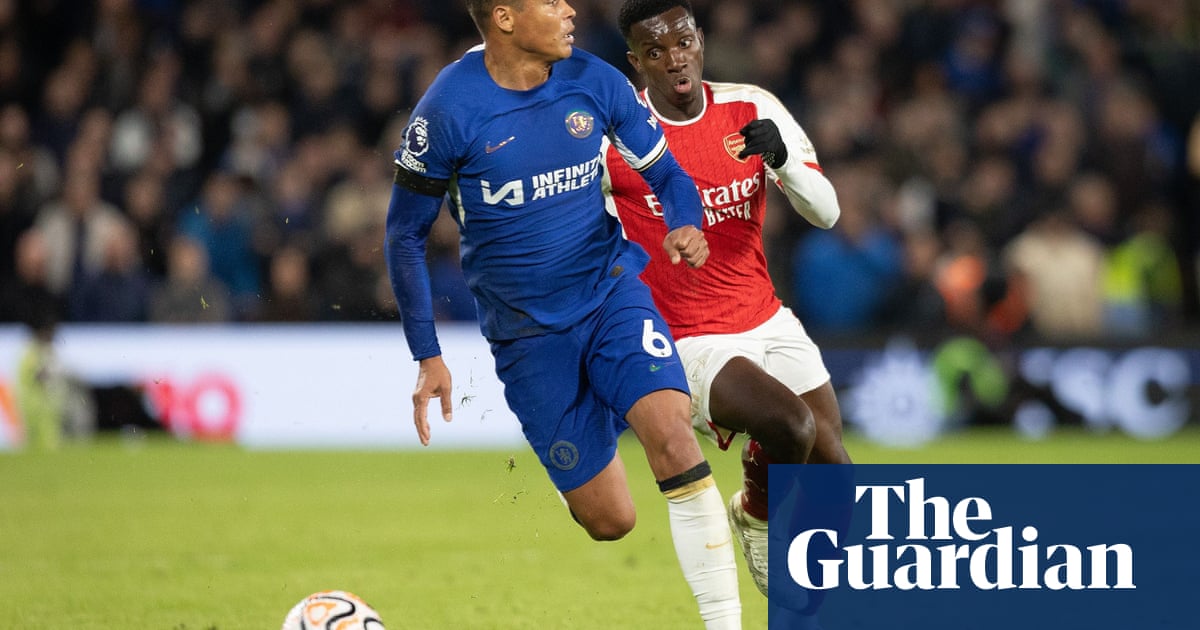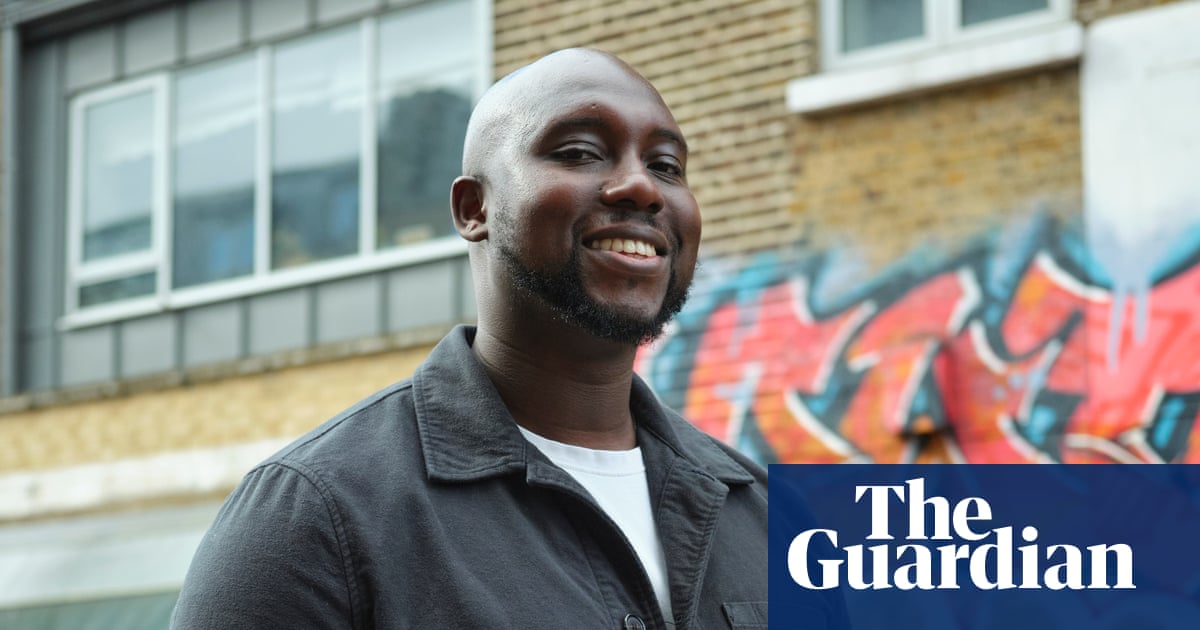
Thiago Silva is in full flow at Chelsea’s training ground, talking about how he is able to be at the top of his game at the age of 39 and the sacrifices he has made to reach the highest level, when he leans forward and says: “I can’t live without football.”
He continues: “It has been my life since I was a little kid and the thing is, my passion for the sport is still the same today. My eyes before training, they light up, and it is the same for a game or watching a game, watching my kids play, my eyes light up.”
The Brazilian is one of those rare sportspeople who seem to get better with age. He joined Chelsea on a free transfer from Paris Saint-Germain as a 35-year-old in the summer of 2020, his arrival going under the radar as Kai Havertz, Timo Werner and Édouard Mendy signed for big transfer fees. Only Silva remains at the club.
According to Silva, his current form is as much down to what he doesn’t do, as what he does. “Twenty-four hours a day does not seem enough,” he says. “Here’s my day from morning until night: I wake up at about 8am and I have to be here [at Cobham] by 8.45am. I arrive, have a coffee, I do what I have to do pre-training, I train.
“I do the post-training recovery here at the club, then I come home and rest in the hyperbaric chamber for two hours. I wake up and then my team of professionals are ready to continue my recovery. There’s food, an afternoon snack, dinner, supplements. I do my boots at home and I try to be with my family. Sometimes, I bring my children [who are in Chelsea’s academy] and I watch a bit of the training. Anyway, the next day it’s the same. And the next. So it’s much more recovery than actual work these days. Less is more.”
There are seven professionals working with Silva every day: a doctor, a nutritionist, a physiotherapist, an agent, a lawyer, a press manager and a personal coach. He sees his staff as an investment and one of the reasons for his longevity. “But nowadays, young people, many of them, see it as an expense, a waste of money to have someone on their side,” he says. “They think they’re throwing money away by having a professional helping them. I think it’s quite the opposite: it’s an investment.”
Born in Rio de Janeiro, Silva impressed at an early age and joined Fluminense when he turned 12. Even back then, his days were full with school, training and a gruelling four-hour commute. He has no regrets but realises he had to make sacrifices. “I think it’s fair to say that I lost a bit of my childhood. And it will never come back. But I don’t want people to think: ‘Oh, poor guy, he lost his childhood.’ No. It was my choice. I chose it because I knew it could give me and my family a better future.
“I used to go to school early and then straight to Xerém [Fluminense’s youth training centre], which was very far away. I’d get to Xerém, train and get home at about 9pm. As I was walking home, my friends were out playing, having fun. They said: ‘Come on, let’s have a chat.’ Sometimes I’d stop for five or 10 minutes and sometimes I couldn’t. I was too tired. And that meant losing out, not being with my friends.”
His first move to Europe, to Porto in 2004, ended with his return to Fluminense two years later. In 2009, though, he joined Milan, where he met one of the biggest inspirations of his career: Paolo Maldini, who was still playing at the age of 41.
“Meeting Maldini sparked something in me,” he says. “I was 24 when I arrived and looking at him made me think: ‘The way I look after myself – I don’t drink, I don’t smoke, I don’t miss my sleep – means I can reach Maldini’s level.’” A pause, and a smile. “Age level I mean of course, not performance level. There is only one Maldini.
“He certainly changed my mentality. Not just him, but Alessandro Nesta as well. Nesta was a teacher for me in training. He had just come back from an operation, which made it a bit difficult for him, but he had me who could run around and help him. He told me where to go and I’d go. I did it with great pleasure because I always liked his way of being, his way of training and especially his quality. I realised that by playing with him I was going to learn a lot.”
A few months before joining Milan, Silva had made his Brazil debut in a 4-0 victory over Venezuela. He played for the Seleção for an astonishing 15 years, winning 113 caps. There were highs – winning the Copa América, for example – but also a few lows, the latest of which, the defeat to Croatia in the 2022 World Cup, has yet to heal. Neymar gave Brazil the lead in the 105th minute but, with four minutes of extra time remaining, Bruno Petkovic equalised. Croatia went on to win on penalties.
“It hurts a lot, a lot, a lot,” Silva says. “A lot because I see many people say that Brazil didn’t play well at all, that we were eliminated without playing well, that we could have done this or that … But once it’s over it’s very easy to point out the mistakes. They said that Fred shouldn’t have gone forward. It’s a game situation, man. We have to make decisions in a split second. Imagine if Fred goes out there, gets the ball back and we score the second goal and kill the game off? But it was the other way round.
“The best team doesn’t always win the game … and that’s why it hurts me so much because we were on the right way, with a good vibe. Our group was very united. Not just the players, but the whole team, coaching staff as well.”
It was Silva’s fourth World Cup. There have been other painful memories: the defeat to Belgium in Russia in 2018 and, of course, the 7-1 loss to Germany at the home World Cup four years earlier, even though he was not on the pitch for the latter.
But the biggest regret remains the Croatia game because Silva was desperate to win the World Cup, not only for himself but for the coach, Tite, for whom the defender has the utmost respect. “I’m grateful that he believed in me and fought for me,” he says. “I tried to do what I could for him on the pitch, in the best possible way, but I couldn’t do the main thing, which was to give him the World Cup.”
Why has Tite not been offered a top job in Europe yet? “I am not sure but I think I have an idea: because he didn’t win the World Cup. People focus only on the result but not about the good work that has gone into the other teams.
“Tite is one of the best coaches I’ve ever worked with. If he had come to Europe, to a high-level team, I’m sure he would have added a lot.”
Silva spent eight largely successful years at PSG but despite heavy investment and seven league titles they never won the Champions League. “Look, nothing happens overnight,” he says. “You’re not going to achieve everything just because you have a lot of money. That is not how football works. If you don’t have a clear plan of what you want, things won’t work out. First and foremost, you have to be respected inside your country in order to be respected outside. We didn’t do that. We did the opposite. We wanted to be loved abroad, but we didn’t do anything to be respected at home.”
After the move to Chelsea he won the Champions League in his first season. Apart from that success, the team have struggled with an ownership change and four managers in four years: Frank Lampard, Thomas Tuchel, Graham Potter and, now, Mauricio Pochettino.
He has special affection for Lampard, who brought him to the club – “If I’m here today, happy, and the fans like me, it’s all thanks to the legendary Frank Lampard” – and credits Pochettino for getting him fitter. “Pochettino has helped me a lot with my fitness,” he says. “Not that I was complacent but I was in my comfort zone. It looks like everything is fine, and it feels fine, but he managed to get me out of that area.”
Silva is the oldest outfield player in the Premier League at 39 years and two months and wants to carry on for another season or two. He is, though, preparing for life as a coach. “On the pitch I’m already a bit of a manager, right?” he says. “As I watch the game from the back, I see a lot of situations. And then I warn [the others] about certain situations. I talk to the staff, to Pochettino, so that we don’t make mistakes.
“Sometimes, only us on the pitch realise what’s wrong and what could be done better. And there are situations that those who are off the pitch, with a clear mind, see much better. This relationship is important.”
As our conversation draws to a close Silva makes clear how important the Seleção are for him. He has said that he is available for selection if the interim coach, Fernando Diniz, wants him. “The good thing in football is the chat, the atmosphere in the dressing room,” he says. “I’ll miss that a lot [when I finish]. I’m going to miss it because it’s the most incredible thing in the world to be in a happy environment, like that of my Seleção.”
As with anything in Silva’s career, it is best not to rule anything out.












